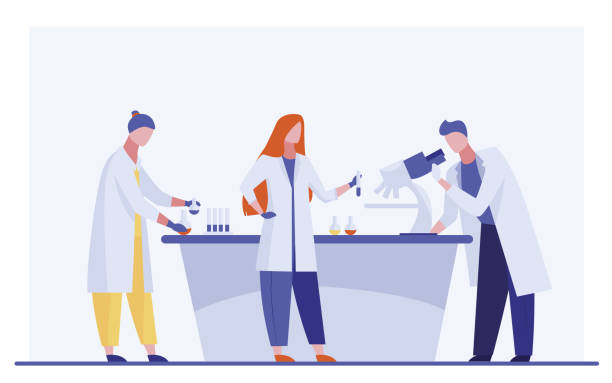Medical Laboratory Technology


Radio Technician

Public Health Administration

Pharmacy

Optometry

Occupational Therapist

Nursing

Medical Laboratory Technology

Clinical Report

Audiologist
Medical Laboratory Technology : About
The analysis is conducted on body fluids such as blood, urine, sputum, stool, etc. Medical laboratory scientists work in clinical laboratories at hospitals, physician's offices, reference labs, biotechnology labs, and non-clinical industrial labs.

:
Career Roles & Responsibilities
- Examine body fluids and tissues for abnormal chemical levels, cells or bacteria.
- Prepare tissue for microscopic examination by pathologists.
- Determine blood type for transfusions.
- Conduct medical research and analyses.
- Operates and maintains sophisticated instruments and equipment used in the division, is able to properly set up, calibrate, maintain, operate and shut down such instruments.
- Maintains competence in Laboratory Information System that is crucial to the quality operations of the laboratory and patient care.
- Actively participates in Quality Improvement Programs essential to ensure that laboratory testing is accurate, timely and meets customer needs.
- Trains and orientates new Medical Laboratory Technologists in the performance and interpretation of tests.
Imporatnt Facts
- Most colleges have eligibility criteria of a minimum 50% aggregate marks in Class XII / and some of a minimum 60%.
- Must have passed class 12th or senior secondary examination with at least 50% marks including English.
- Some colleges/ universities also have an age limit (17 on 31st December of the year of admission).
Leading Institutes
Medical Laboratory Technology >> Career Prospects
Medical Laboratory Technology >> Job & Salary
- Assist the doctor by testing body fluids of the patients
- Evaluate samples of blood, urine, tissue culture, etc., for infections
- Operate different types of equipment and machines to obtain accurate data
- Calibrate and analyse reports of the patients
- Discuss the results drawn with the doctor to help the patient with the right treatment
- Handle a large number of diverse samples with precision and care
- Explain the procedure of testing to the staff members
- Supervise the maintenance of the laboratory with proper sanitation
- Perform duties in line with the ethical standards
Medical Laboratory Technology >> Pros & Cons
Career Pros Details
- Job opportunity: Job opportunities are stable and on the rise. With higher education and knowledge, you will get the opportunity to get into supervisory roles or more advanced medical lab positions.
- Make a Difference: You can make a difference in people's lives. The work that a lab technician does, leads to someone's life being saved. You know that your job is important, and it gives a sense of satisfaction.
:
Career Cons Details
- Hectic work: The work can be difficult and hectic. The majority of your day will be spent on your feet walking around in the lab. You might not get time to relax because your lab is filled with work that needs to be done.
- Monotonous Work: You might feel bored with your job, as the nature of the work would be the same
Medical Laboratory Technology >> Famous Personalities
Medical Laboratory Technology >> Skills Require
- Independence.
- Meticulous attention to detail.
- Excellent written and oral communication skills.
- Good teamwork skills.
- Analytical skills.
- Time management.
- Integrity and a professional attitude.
- Aptitude for mathematics and science and a keen interest in scientific work.
- Ability to do detailed work and maintain a high level of accuracy.
- Good colour and form perception (to study blood cells, etc.)
- Good communication and interpersonal skills.
- Ability to adapt easily and quickly to change.
- Enjoy taking a methodical approach to their work, analyzing results, establishing procedures, and using computers and specialized instruments for accurate and precise testing.





